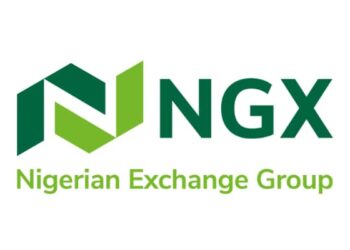In Nigeria and beyond a trending movie this time is the King of boys 2 (The return of the King). It is a seven-part series Nollywood movie, streaming on Netflix platform on the internet. In my view, the storyline of the movie can easily pass as a reflection of the dark side of politics in the country, Nigeria.
It tells the story of Alhaja Eniola Salami (real name Sola Sobowale), the lead character, as a very powerful businesswoman, and an influential political figure. She is the eponymous King of boys, heading a table of gang-lords and whatever deal any of the other men on the table makes, they are obligated to give her a percentage as the King.
Despite the elated performance of Alhaja Eniola Salami (Sola Sobowale) in the movie, the heavy criticism of her role is the focus of this piece. Alhaja Eniola’s criticism was no surprise at all I must submit, having played a significant role that many believed was best suited for the male gender, and this made the condemnation of her role in the movie severe.
In Africa, gender equality is a lip service phenomenon and it is not only in entertainment but also prevalent in the business world and indeed in politics and governance. From observation, women leaders are basically in their minority, even in the military, education, and religion.
Their acceptability is usually low and this has existed for several generations and has become a norm in homes, businesses, governance, and most spheres of African life.
Undeniably, politics and corporate leadership in most African nations bear a masculine face and Nigeria is not an exception. Women are viewed to have very limited access to decision-making processes in all domains. More so the continent particularly instills a culture and norms that women are subordinates and in some cases are perceived as lesser beings than men principally in leadership. Leadership is the action of leading a group of people and it is connected to governance, management, and/or administration of corporate entities.
Though women and men have different biological and physiological make-up, conversely, women may still share common features with men in terms of educational qualifications, socio-economic status, and occupation, among others.
The biological makeup which is associated with gender is what is widely acknowledged and valued in leadership, rather than personality, competence, and character. This perception is particularly challenging for women mainly because effective leadership transcends gender. So the continued criticism of Alhaja Eniola on her role in the movie is largely tied to gender disparity.
Painfully, it is well documented in literature that leadership is a role perceived as a masculine role on the African continent. So regardless of the capacity, experience, competence, knowledge, displayed by women they are not seen as having parity with men. For this reason and despite women’s share of the population, women remain underrepresented in leadership across the continent.
For instance in Nigeria, the World Bank reported in 2020 that the labor force in the country has 44.82 per cent of female representation. The big question is how many of these females hold key leadership roles? Furthermore, the report ranked Nigeria as 128th out of 153 countries in a survey and the country has remained within the 100th and 130th position out of these 153 countries, over the last 10 years (2010 – 2020). In the same vein out of 53 countries in Africa, Nigeria holds the 27th on the World Bank’s Global Gender Gap Index 2020. This available data implies that as a nation Nigeria still has much to do in attaining gender parity and having meaningful representation for women.
It suffices to say the trend is not due to a lack of competence or leadership traits on the part of women but that the public has accepted the culture as a way of life on the continent. Remember, when partisanship, political pressure, and gender bias are taken into account, the gap and differences become sharper and more obvious. Even though generally, women are perceived to have an advantage over men on honesty and ethical behavior index which are key elements of leadership, these traits in women are rarely considered.
Some of the known and cited barriers to female leadership are sexism, stereotyping, sexual harassment, family demands, maternity, and institutional mindsets. In fact, the obstacle female face begins in the womb, families that prefer sons may abort daughters. For these reasons and more, women are not only ignored in leadership but are likely to continually be in vulnerable employment, paid less than men, and even be more unemployed than men if this disparity remains ignored.
It is noteworthy to mention that it is time for opinion leaders, captains of industries, governments, religious leaders, policy, and decision-makers to improve on gender matter advocacy in leadership and discourage the social structures and family values that completely favor men over women.
The world is evolving and the concept of effective leadership has moved from an emphasis on “who” the leader is to “what” the leader can do. So with this conception, attention should therefore be placed on improving on selection approach of a leader with gender-neutrality. Capability and ability should be the key determinants of a leader particularly in the business world and in governance, where competence is expected to drive performance. It is noteworthy that key aspects pertinent to leadership such as self‐confidence, honesty, humility, trustworthiness, responsiveness, education, experience, competence, and integrity which are not gender-specific should be the most important attributes to consider when considering a leader and not the gender. In my humble opinion, there is no shortage of qualified women to compete for any leadership role, be it in governance, military, business, corporate, or academia, we just need to improve on the political will.
Even though in Africa there are few or no regulations on gender matters. Nigeria can still do more on the established gender-mandated regulations. For instance, the Central Bank of Nigeria (CBN) has a regulations-mandate of having a minimum of 30 per cent of females on boards of Nigerian commercial banks this can be reviewed upwards to 40 per cent if not to 45 per cent. Then as a capital market operator in Nigeria, I am aware that the Securities and Exchange Commission (SEC) has a Code that recommends that publicly listed companies should consider gender when selecting board members, this Code ought to be reviewed to have specific gender-based rules to improve female participation. Such regulations where applicable should be duly monitored along with proper enforcement. Furthermore, governments need to intensify gender policies to address the gender imbalance in the polity.
Finally, to have greater participation of women in all spheres of Nigerian society and indeed Africa, the governments and all stakeholders should engage in programmes and policies that would empower women politically, socially, and economically. This is because women can be a major stakeholder in the developmental project of any society if given the opportunity and platform. Culture and customs such as women are required only to take care of homes, and girl child marriages should be discouraged across the continent. More importantly, education must be a priority for all. Good luck.
How may you obtain advice or further information on the article?





